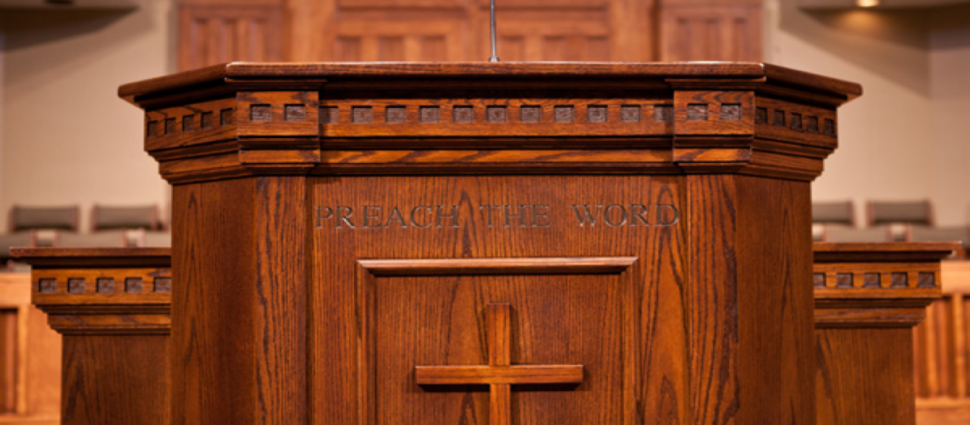Majoring in the Minors: Zechariah

There is a certain mode of preaching that tells you to shape up first so God can come into your life. It is absolutely correct that moral transformation is a necessary entailment of the good news of Jesus Christ. (Eph. 2:10; Heb. 12:14) And yet God’s saving grace always comes before and runs ahead of our moral transformation. It does not trail reluctantly behind. The reality is that we first welcome Christ in our sinfulness before we make any real progress in holiness. Hence the call to confess our sins and be forgiven (1 Jn. 1:9). A series of frightening dream-visions and dire rebukes in the book of Zechariah paired with beautiful pictures and promises of the coming Messiah lead to this conclusion.
Zechariah, along with his counterpart Haggai, speaks from this period of return from exile in Babylon and rebuilding of the temple in Jerusalem. (Ezra 5:1-2) He does so with a broad scope and a heavily symbolic style. Whereas Haggai’s burden is laser-focused on the specific priority of rebuilding God’s temple, Zechariah’s burden is more generally for the people to be spiritually and morally disposed for God’s renewal and fulfillment of his covenant relationship with them. Indeed, God’s grace trains us “to renounce ungodliness”. (Titus 2:11-14) The book of Zechariah leads us to the conclusion that only Christ’s coming itself will make God’s people into a fitting community for the LORD’s dwelling.
In the first half of the book of Zechariah we have a series of visions that remind us of our failure to live out God’s design for his people and their consequent exile, but also of the ongoing hope of righteous leadership to bring about the fulfillment of God’s purposes for them. His purposes will be accomplished through a coming High Priest. In the last of a series of visions he is figured by Zechariah’s contemporary, the high priest Joshua, who, not coincidentally, bears the very same name in Hebrew as our Lord. (6:9-15)
Prior to that final vision of the High Priest Joshua is a series of eight visions in parallel fashion. The first and eighth vision are of four horsemen who patrol the earth, symbolizing God’s watchfulness over world events which includes the end of his people’s exile in Babylon and their return under the Persians to rebuild Jerusalem. The second and seventh vision have to do with the peoples’ long history of rebelliousness and their consequent humiliation by the Babylonians and later the Persians. The third and sixth vision picture the rebuilding of Jerusalem and its moral purification by righteous government. The fourth and fifth vision in the middle of this mirror structure have to do with the provision of a righteous priest and king. The fourth vision includes the wonderful image of the exchange of filthy garments for pure, priestly vestments. (3:4)
Although the prophets leading up to John the Baptist served to prepare God’s people for Christ’s coming, God’s people would never be ready in themselves to receive him. Indeed, when God’s Son came he was greeted with mixed enthusiasm and hostility, ultimately handed over to be crucified. He would have to take it upon himself to suffer and sanctify his people by his coming.
Hence, the second half of Zechariah is preoccupied with the figure of a Shepherd King who rides into Jerusalem on what we have come to know as Palm Sunday, “humble and mounted on a donkey.” (9:9) He comes to serve his rebellious and wayward people, not make war against them. He is struck and the flock scattered, foreshadowing the flight of Christ’s disciples at the garden of Gethsemane. (13:7) In the midst of this conflict, however, a fountain for cleansing from sin is opened. (13:1) The close of Zechariah’s book is a picture of a river flowing in the middle of Jerusalem and renewing the whole earth. (14:8-9) This is also the result of Christ’s reign in the book of Revelation. (22:1-3)
When we are convicted of sin, called to repentance, and longing for righteousness and peace, prophets such as Zechariah point us to the Messiah whose servant leadership as Priest and King realizes these righteous aspirations and longings. “They will call upon my name, and I will answer them. They will call upon my name and I will answer them. I will say, ‘They are my people’; and they will say, ‘The LORD is my God.’” (13:9) This is the one for whom are hearts and consciences cry out.
The Rev. Steven M. McCarthy is a church planter at St. Barnabas Anglican Fellowship, an extension work in the Reformed Episcopal Church’s Diocese of Mid-America (ACNA). He and his wife Emily are raising four young children in their hometown of Lansing, MI.





